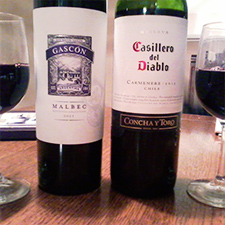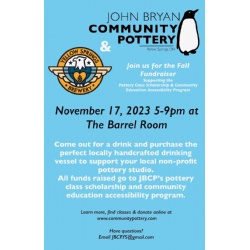Awesome, Value-Conscious Wines
Grab your safari jacket, fedora, and bullwhip - we're on the trail of two grapes that have all-but-disappeared from France, and then resurfaced in the wilds of South America. These two grapes are Malbec and Carmenere, and they make some awesome, value-conscious wines.
We start our expedition in Bordeaux - the region in southwestern France that's the ancestral home of Cabernet Sauvignon and Merlot, where the exclusive wines of Chateau Margaux and Chateau Petrus sell for $600 to $1000, or even more, per bottle. But if you dig through the archives, you see that Malbec plays a minor and diminishing role in the Bordeaux blend, and otherwise is found only in the Cahors region. And Carmenere disappeared completely over a century ago - and was lost forever. Or so we thought...
Turn the clock forward to the 1990s. On one side of the Andes mountains, the winemakers in Argentina responded to their country's financial crises by ramping up their wine exports - previously, almost everything they made was consumed at home. Somehow, the Italian immigrants of the 1800s latched onto a French grape, planted it by the square mile, and their great-grandchildren shipped it north to the US a century later. On the other side of the snow-capped range, Chilean winemakers were looking to improve both quality and profitability, so they ran DNA tests on their Merlot vines. They wanted to identify the healthiest, best-yielding, and tastiest sub-varieties, but they found a real mystery - scattered through the Merlot fields were something else entirely. Back to the archives we go!
What happened in Argentina has changed American wine-drinking in the last 20 years. The quality, price, and big tannic wallop of Malbec from Argentina came on the market just in time to catch the high-protein, low-carb diet movement - and they captured a huge chunk of the $6-$20 tier in the US. Something about Malbec grapes grown on irrigated foothills, overlooking the pampas where the gauchos drive their cattle, creates a wine that's just perfect for steak. Good fruit, some excellent pepper and spice notes, and a smooth tannic backbone are the calling cards of Malbec.
The Carmenere discovery in Chile hasn't taken us by storm the way Malbec has, but I think it's even more significant in the long run. Just like Zinfandel is inevitably associated with the US, Carmenere is Chile's signature grape. It's even denser and darker than Malbec, with heightened cassis and blackberry fruit notes, a thick texture, and a long finish. It's also great with steak, but try it with smoked and barbequed meals too. Some Bordeaux winemakers have been sneaking cuttings back into France, in the hope that the grape will flourish again and it will go back on the approved variety list in the future.
PKNT Silver Carmenere - $7; super-dense color and nice spicy fruit - an amazing wine the price.
Momentos Carmenere - $12; jammy fruit and a touch of oak to smooth out the finish.
Ventisquero Gray Carmenere - $15; chocolate-covered cherries and a chewy finish.
La Finca Malbec - $5; impossible to beat for the price - not too jammy, with good balance.
Juan Benegas Malbec - $14; excellent character and a smooth, long finish - Señor Benegas' great-grandfather was the first to bring French grapes to Argentina!
Humberto Canale Reserva Malbec - $23; big jammy fruit and a touch of oaky vanilla.
Next time you're in the mood for an adventure, try one of those bottles and see what you find.
Cheers!


















